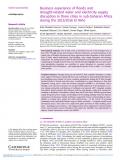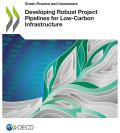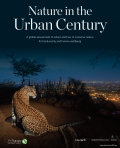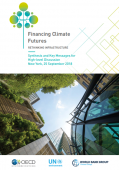
The El Niño event in 2015/2016 was one of the strongest since at least 1950. Drought during the event amplified disruption to public water supply in Botswana’s capital and contributed to unprecedented hydroelectric load shedding across Zambia. In Kenya, moderate precipitation during the El Niño brought localized floods to Nairobi and other areas. Yet, during the 2015/2016 El Niño, fluctuations in precipitation were not extreme considering the strength of the El Niño event. Results, therefore, highlight that even fairly moderate precipitation anomalies can contribute to major disruption to economic activity.

This paper Developing Robust Project Pipelines for Low-Carbon Infrastructure aims to provide policymakers with a comprehensive examination of “project pipelines”, a common concept in infrastructure planning and investment discussions, and one which has become a focal point in countries’ efforts to implement their climate commitments.

Released in advance of the 2018 UN Convention on Biological Diversity Conference of the Parties meeting, Nature in the Urban Century, this report from The Nature Conservancy, Future Earth and The Stockholm Resilience Center, calls for global action to conserve habitat for nature and for human well-being as global leaders work to revise goals for biodiversity protection within the convention.

In the context of the OECD, UN Environment and World Bank Group's "Financing Climate Futures: Rethinking Infrastructure" initiative, this synthesis report identifies six transformative areas that have the potential to help the different financial actors move beyond an incremental approach to the low-carbon transition towards the transformational agenda needed for decisive action.

Municipal Policy for the Circular Economy: Lessons learned from Amsterdam highlights 17 actionable recommendations for urban policymakers throughout the world to boost circularity through legislation, spatial planning, circular public procurement, business support, knowledge instruments.
